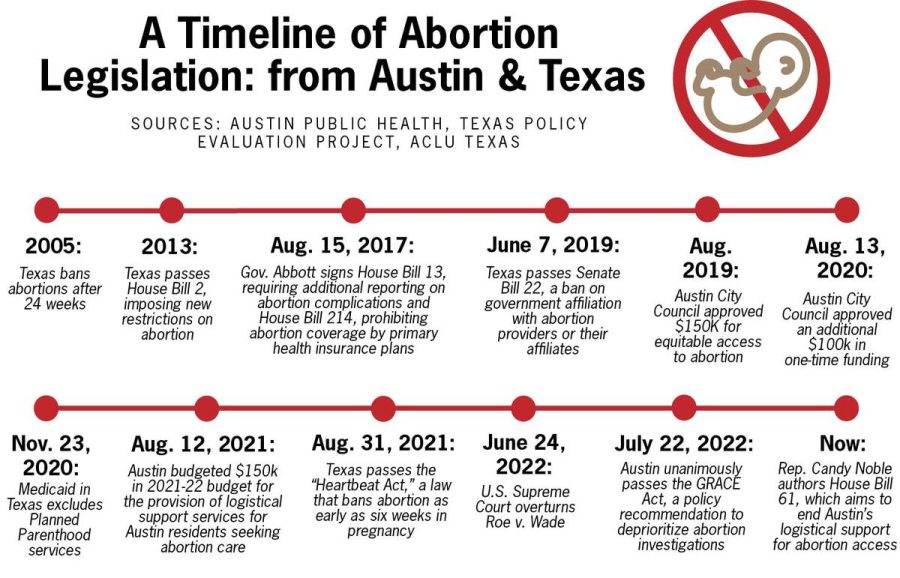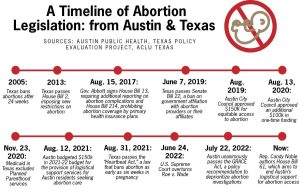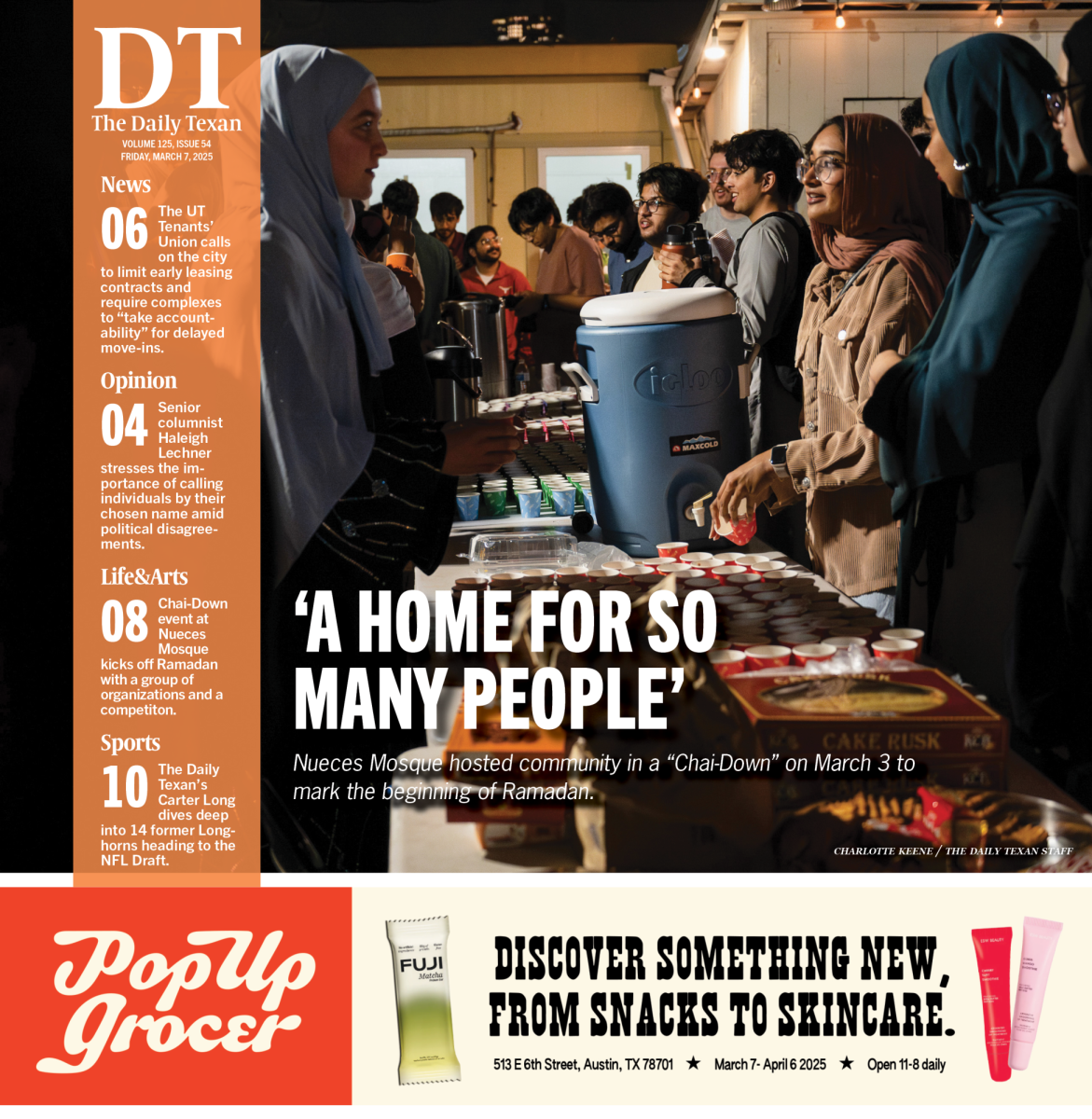New abortion bill aims to end travel funding for out-of-state abortions
January 23, 2023
A new bill from the 2023 state legislative session is set to target Austin’s logistical support for abortions. Logistical support is defined as any funding that allows individuals to travel for an out-of-state abortion such as child care, travel or lodging.
House Bill 61, filed by Rep. Candy Noble, prohibits government entities from spending money to provide logistical support for people seeking abortion. The bill follows Austin’s recent approval of such funding for the 2021-22 budget.
“It feels a bit draconian,” said Paige Ellis, Austin mayor pro tempore. “It is laughable that (Republicans) think they could be a pro-life party when they actively work against people trying to better their lives. People who are capable of becoming pregnant could die because they can’t access the right health care. That’s a failure of the government.”
The bill is the latest in legislation aimed at Austin’s abortion work. In 2019, the legislature passed Senate Bill 22 prohibiting any contracts between local governments and abortion providers or affiliates. The law ceased Austin’s long-standing $1-a-year lease agreement with Planned Parenthood of Greater Texas.
“There is nothing more important than defending the defenseless,” Lieutenant Governor Dan Patrick said in a statement in 2019. “Senate Bill 22 will continue Texas’ commitment to defend the most vulnerable in our society and preserve the sanctity of life.”
Following SB 22, the city worked around the law through an unprecedented initial investment of $150K and more funds later redirected from the Austin Police Department to groups like Jane’s Due Process to provide logistical support.
Under Noble’s bill, this funding would cease to exist.
“It’s a thinly veiled attempt to restrict people’s agency,” said Nikita Kakkad, founder of Emergency Contraception 4 Every Campus, an emergency contraceptive advocacy group. “People who have money are always going to find ways to get an abortion because they have the resources and support to do so. Poor people of color (without) support networks … need the logistical support abortion funds provide. It’s just another barrier that is classist and racist.”
While the bill failed to pass last session, its Senate counterpart passed through the upper chamber. Jenna Hanes, policy and communications advisor for the city council, said while the Council is aware of Noble’s bill, their Intergovernmental Relations office is still monitoring the situation.
“We have great trust in (the Intergovernmental Relations) office to keep us apprised of changes and let us know when there’s something we need to prepare for,” Hanes said. “I believe it’s too soon to know for sure whether that bill is going to gain enough traction to go through. … It’s something that I’m aware of and tracking personally, but we tend to respond once the office lets us know that it’s a direct threat.”
While the legislative session is still in its early stages, Ellis said the Council will continue to find workarounds to any abortion restrictions from the state.
“(People) want control over their own future and their own bodies,” Ellis said. “We’re not going to stop finding ways to help people no matter what.”
Noble and her office did not comment on the matter.
“In the eyes of Austin residents, protecting abortion rights is less controversial than traffic law,” Hanes said. “The hope is that we can hold the line as much as legally possible until the federal government gets its act together and protects people who can get pregnant at the federal level.”













